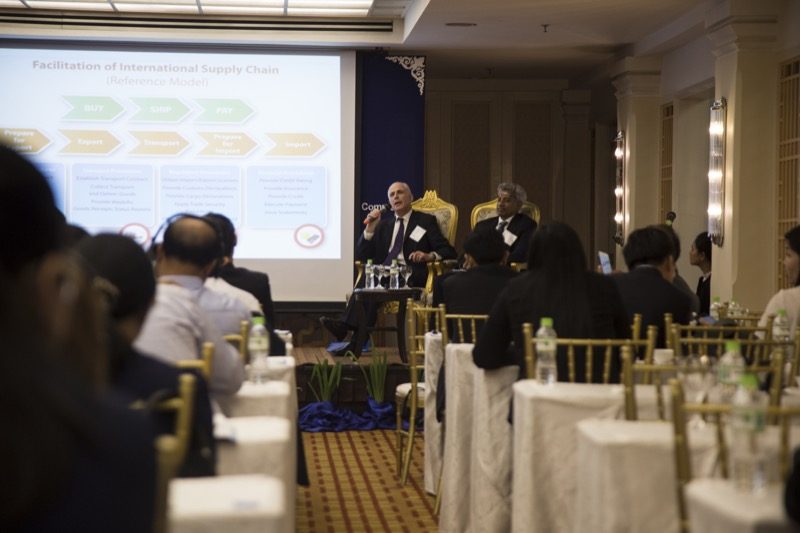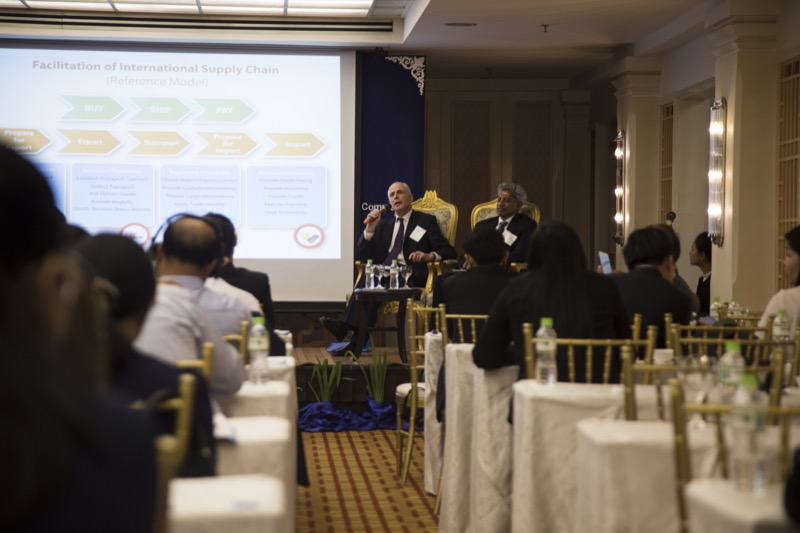The U.S. on Tuesday advised Commerce Ministry representatives on streamlining import-export systems and generally making trade with other nations easier during a workshop in Phnom Penh, held to help Cambodia comply with a World Trade Organization agreement to simplify cross-border trade.
The Trade Facilitation Agreement (TFA), ratified by Cambodia in December 2015, “acknowledges the need to tackle red tape, increase transparency, and address non-tariff barriers that impede trade across the globe,” according to a USAID report last year that suggests steps for Cambodia to implement the agreement.

The report was presented to Commerce Ministry officials during the first day of a two-day workshop in Phnom Penh, after it was first shared with the government in September and finalized last month.
The USAID report’s recommendations include some pre-arrival processing of imports, electronic payments, the publication of average processing times, and better coordination of border posts’ operating hours and procedures with neighboring countries, among other recommendations.
The TFA offers Cambodia the opportunity to increase its “competitiveness, diversify its export sectors, and drive economic growth needed to increase incomes and reduce poverty,” the report says.
U.S. Ambassador William Heidt said Cambodia should prioritize helping small- and medium-sized enterprises, which often lack resources.
“It is important to use TFA to do all we can do to help them reach to the market and unlock their full potential,” Mr. Heidt said, arguing that removing complex trade procedures would allow businesses to operate more smoothly.
Mr. Heidt also suggested that officials prioritize the agricultural sector, which currently faces challenges to reach sanitary standards in order to sell goods in the global market.
“Despite a good production condition, very fertile soil, very experienced farmers and a large nearby market, Cambodia exports very few agricultural products…. Seventy percent of fresh fruits and vegetable sold in Cambodia are imported,” he said.
Commerce Minister Pan Sorasak said some of the recommendations were already in line with the ministry’s priorities.
“More than 90 percent of imports have been cleared in 24 hours, which is an improvement of clearance of customs,” he said.
Drafts of several laws related to e-commerce, consumer protection, commercial contracts, food safety and security were also in the pipeline, he said.
“For developing and least developed countries, the agreement aims to simplify and subsidize customs procedure. By doing so, it will help cut trade costs around the world,” he said.
Cambodia, “as the eighth least developed country to ratify the agreement, has illustrated the desire to improve regional and international trade relations by finding a way to expedite the movement, release and clearance of goods.”
Cambodia ranked 98 of 189 economies in the World Bank’s Doing Business Report last year.




